#franchise of english medium school
Explore tagged Tumblr posts
Text
Why Birla Open Minds is the Perfect Choice for School Franchise Owners in India
Birla Open Minds, India's premier educational institution, is undeniably the perfect choice for school franchise owners in the country. With a strong reputation for excellence in education, Birla Open Minds offers a comprehensive and innovative curriculum that meets international standards. This ensures that students receive a high-quality education and are well-prepared for their future endeavors.
One of the key reasons why Birla Open Minds stands out as the ideal choice for school franchise owners is its extensive support system. Franchise owners receive comprehensive assistance in all aspects of school operations, including infrastructure development, recruitment, and training of teachers, marketing and branding strategies, and ongoing academic support. The school also provides franchise owners with regular trainings and workshops to upgrade their skills and stay updated with the latest educational practices.
Moreover, Birla Open Minds offers a strong network of like-minded franchise owners who can share experiences and best practices. This facilitates collaboration and fosters a sense of community among franchise owners.
Additionally, Birla Open Minds' focus on holistic development sets it apart from other school franchises. The curriculum emphasizes not only academic excellence but also the overall growth of students through co-curricular activities, sports, arts, and character-building programs.
In conclusion, Birla Open Minds offers a powerful combination of academic excellence, comprehensive support, and a focus on holistic development, making it the perfect choice for school franchise owners in India. https://birlaopenminds.com/why-birla-open-minds.html
#school franchise school franchise in india#school franchise business plan#english medium school franchise best school franchise#best school franchise in india#international school franchise opportunity
0 notes
Text
OLIVIA COOKE INTERVIEWED FOR FLAUNT MAGAZINE.
Waiting just beyond reality’s gauzy guardians, the other world lies just under the duvet in the throes of school night darkness: a library book stuffed under a pillow, a cave of blankets, thrilling stalactites of story to be illuminated by a covert flashlight.
That’s how Olivia Cooke remembers her induction into the fantastical, anyway.
“Reading all night, and then sobbing into my pillow at 4am—audibly—with my mum shouting at me to go to sleep.”
Cooke isn’t taking any breaks—she’s already working on a new project with Robin Wright, psychological thriller The Girlfriend, set to be released through Amazon Prime Video.
The actor has a propensity for vivifying characters to the fullest extent regardless of medium or genre:
“I am picky,” she tells me about the breadth of her work,
“But I’m just not exclusive.”
WHAT IS IT THAT AUDIENCES LOVE SO MUCH ABOUT MUTILATION AND POWER, ABOUT CREATUREHOOD AND POLITICS IN WESTEROS, THE LAND UPON WHICH GAME OF THRONES AND HOUSE OF THE DRAGON IS SET?
Cooke muses, people are fascinated with the idea of escape—an out that the Game of Thrones franchise has certainly provided to an anxious, overworked public.
She ponders further, positing:
“We as humans want to feel like we’re giants and godlike creatures who can tame a beast like a dragon. Maybe it’s this innate feeling in us of the need to conquer."
“God, especially the fucking Brits.” [She laughs]
“What does that say about us?”
I ASK COOKE IF THE EXCITEMENT SURROUNDING THE SERIES—PARTICULARLY THE QUESTIONS SHE (GLADLY) FIELDS ABOUT THE POWER OF FRIENDSHIP—HAD MADE ANY IMPACT ON THE WAY SHE FRAMES HER OWN RELATIONSHIPS?
“I don’t think that the show has necessarily made me reevaluate friendship.”
“I just think that with the age that I am at now, getting into a new decade, I’ve prioritized my friendships in a different way.”
“I think that, especially in culture, [friendship] sort of takes the backseat.”
“You’re meant to prioritize romantic relationships and familial relationships in your life, but friendships feel deeper and everlasting in a sense.”
WE APPROACH THE SUBJECT OF POWER—THE TIMES WHERE IT'S APPROPRIATE TO KEEP IT, THE TIMES WHERE IT'S APPROPRIATE TO DELEGATE:
“I think it’s always better to relinquish power when you recognize wisdom.”
“Relinquish unhelpful power, whether that be insecurity or ego, when you are confronted with someone who has more lived experience or is just more knowledgeable in said field.” Duly noted.
Cooke feels the most powerful, though, when she’s surrounded by friends, going on walks listening to a well-curated playlist, or when she really finds the music in a particular scene.
Though she doesn’t make music herself, there is a symphonic quality to her acting—it’s the same sort of kinetic energy governed by a discernible rhythm that makes any sort of artistic output worthwhile.
“It’s all sort of coming from the vulnerable prism of you, isn’t it? Any sort of creative endeavor.”
OLIVIA COOKE MAKES A PLAYLIST FOR EVERY CHARACTER SHE'S EVER PLAYED—SAVE FOR ALICENT.
She claims she “doesn’t know why,” but one might suspect tracks for the Alicent playlist wouldn’t be readily accessible on any sort of streaming platform...
Perhaps a Gregorian chant or a live recording of a knife being sharpened on a hot stone would be more appropriate.
ACROSS ALL CREATIVE MEDIUMS, ACTING OR OTHERWISE.
Cooke adds that she’s “trying to nurture that spark of vulnerability and not shy away from it is quite important.”
“We’re so mannered now— especially the English—so repressed in that sense. We still have this culture of having a very stiff upper lip in the face of adversity and real emotion and grief.”
“To be able to play those emotions in a really intense way—but in a very safe environment—feels very cathartic, and it’s an opportunity to push yourself to those limits and see, as an experiment, what your body does and how you would react in those moments.”
“You’re always trying to find the truth in it.”
Cooke likes to dive into characters (the tender, damaged Lou, the cystic fibrosis patient Emma Decody, the terror-stricken Laine Morris, the ever-vengeful Alicent)
“Because of this exploration of truth, but also because she’s really nosy and curious.”
“I want to dive deep into who [these characters] are... I think that is the most wonderful part of [the] job, that we get to live all these lives in one life if we’re lucky.”
Olivia Cooke speaks with a diction nearly impossible to not listen to. Her outwardly energetic parlance and melodic speak might be the recipe for a certain viral video involving a beverage choice.
SHE COMES FROM A THEATER BACKGROUND, AND WHEN ASKED ABOUT A CLAIM SHE MADE A COUPLE OF YEARS BACK IN WHICH SHE POSITED SHE MIGHT BE MORE CUT OUT FOR TV THAN THEATER BECAUSE OF THE REQUISITE “BIG FACIAL MOVEMENTS OR BIG ARM GESTURES.”
“It’s so awful, isn’t it? Just like...What a cocky little twat! No, I’d love to do theater [again].”
“That girl does not know what she’s talking about. Bless her,” she says, still giggling.
“Sometimes the things I’ve said get repeated back to me and I’m like, ‘God knows...’ because usually I am just making stuff up in the moment.”
IS THERE ANYTHING MORE TO LIFE, THOUGH, THAN THE MOMENT?
She finds herself hoping that, in her golden years (if she’s not senile), she reflects on this present moment aglow with new work and long friendships and internet memeage—with fondness.
“I would like to remember, despite all the constant worrying, that I had a lot of fun.”
“I allowed myself to have a lot of fun. You can indulge, you’re not going to be smited. You can enjoy this time. It’s not going to go away just because you had a nice time.”
Though being smote is perhaps the most terrifying thing any actor or civilian might experience by most standards.
There are other, more tangible things that scare Cooke: Laziness. Inactivity. The vast blankness of dormancy.
“When there’s a bit of a fallow period, that’s when I scare myself with my own thoughts.”
“My mum always says: An idle mind is a devil’s playground. I completely relate to that.”
“When I’m not generating, when I don’t feel like I’m working towards something, that can be quite a scary place for me.”
ABOUT HORROR FILMS AND SOME FILMS FROM HER LETTERBOXD.
The horror is not in the hiding, but in the not knowing.
It shows in her work. It shows in her Letterboxd.
“My Letterboxd does veer on the side of the MORE INTENSE.”
“BORDER by Ali Abbasi is one of my favorite films.”
“I love ROSE GLASS.”
“I think SAINT MAUD was incredible.”
“These are really uncomfortable films to watch but incredibly artful ones.”
“The Luca Guadagnino SUSPIRIA as well...”
“[I like] the ones that leave you with such a distinct off kilter feeling after you’ve left the cinema.”
We’re talking, again, about traversing that seam between the worlds of fantasy and reality—that ever-opaque, grotesque sublime that was so easily accessible so many years ago, that ever-thickening border between adulthood and the imagination.
“It’s a bit of a thrill, isn’t it? It’s like being on a roller coaster. That’s the anticipation. That’s the unique selling point. You want that ride.”
#house of the dragon#hotd#hotd s2#tv shows#team green#olivia cooke#interview#hotd alicent#queen alicent hightower#alicent hightower#letterboxd#acting#flaunt magazine#actors#hotd cast#horror movies
24 notes
·
View notes
Text
You’re Never Too Old to Start Your Dreams: Read These Inspiring Stories
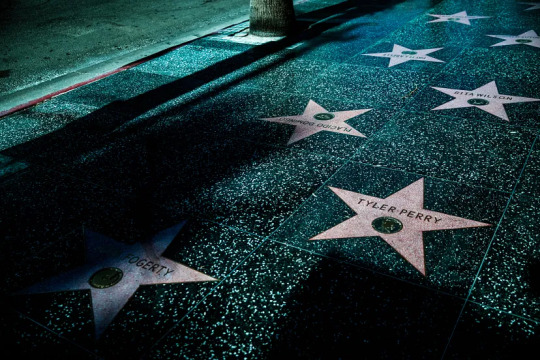
If you really have the desire to start a business, change careers, become an outstanding leader, or simply do something very different with your life, at which point is it too late to be a success? The answer is: never. Need a bit of inspiration to prove that it can be done no matter which age you are, below is a list of 14 incredible people who never reached success until after 40.
Julia Child
At age 39, Julia’s first cookbook was published; and at age 51, she made her TV debut in The French Chef.
Over 50 and Looking For a Career Change? Try These Ideas.
11 career ideas to try as you turn 50
medium.com
Sam Walton
Though Sam owned a small discount store chain, when he was 44, he opened his first real Wal-Mart in the year 1962.
Ray Kroc
In 1961, Ray was over 50 before buying the first McDonald’s, which he eventually grew into a global conglomerate.
Donald Fisher
After a string of entrepreneurial ventures, at age 41, Donald and his wife Doris launched The Gap. Today, it is a $16B per year business that has over 3,200 locations around the world.
Samuel Jackson
Samuel was 46 years of age before starring alongside Travolta in the movie Pulp Fiction.
Charles Darwin
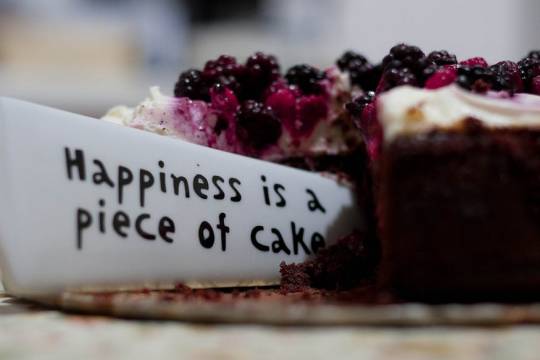
Duncan Hines
Hines, at age 55, wrote his first hotel and food guides. At the age of 73, he licensed the right to use the Hines name for the business that made Duncan Hines cake mixes.
Rodney Dangerfield
Rodney was known for his roles in ’80s films like Back to School and Caddyshack; however, he was 46 years old before getting his big break while on the Ed Sullivan Show.
Harland Sanders
Harland got fired from multiple jobs before starting a restaurant and failed again when the restaurant went out of business and he found himself broke by age 65. Things eventually worked themselves out when he sold the first franchise of Kentucky Fried Chicken in the year 1952.
Robin Chase
The former CEO and founder of Zipcar left her 40th birthday behind and was taking some time off work to be with her kids when she and her friend, Antje Danielson, devised the concept of the car-sharing business in the year 2000.
Nina and Tim Zagat

Vera Wang
She was initially known as a fashion editor and figure skater before making the decision before her wedding in 1989, at the age of 40, that she had the dream of becoming a designer. Wang commissioned her own wedding gown for $10,000 then opened her initial bridal boutique the next year.
Joy Behar
Known these days as The View’s former co-host, Joy was an English teacher who did not start her career in show business until after the age of 40.
Martha Stewart
She owned a catering business in Connecticut and worked on Wall Street, but Stewart’s real success arrived after the age of 41 with the publication of Entertaining, her first book, and seven years later, the Martha Stewart Living launch.
Who inspires you? Do you have a dream that you’d like to get started? Share in the comments section! I’d love to hear from you!
🍉Sign up here to catch every story when Kristen publishes.
Want to start creating passive income streams today? Read this: Passion to Passive Profits eBook
Originally posted on Medium
2 notes
·
View notes
Text
How Music Influences Our Lives: A Journey Through Genres and Emotions
Music is more than just a source of entertainment—it’s a reflection of our emotions, identities, and cultural heritage. From the high-energy beats of action-themed tracks to the soulful melodies of ballads, every genre carries its unique charm. This article explores the impact of music on our daily lives, spotlighting some memorable trends and songs that continue to captivate audiences.
Fast and Furious Song: The Soundtrack of Thrill-Seekers
Nothing complements the thrill of a high-speed chase better than a pulsating beat. The Fast and Furious song captures this essence perfectly, becoming a global favorite for action enthusiasts.
The song’s electrifying rhythm is synonymous with the adrenaline-fueled spirit of the Fast and Furious franchise. Beyond its cinematic appeal, it has become a motivational anthem for workout sessions and road trips. Its ability to energize and inspire listeners makes it a must-have in any high-energy playlist.
Famous English Songs: Bridging Generations
From classic rock anthems to contemporary pop hits, famous English songs have stood the test of time. These tracks resonate with listeners of all ages, thanks to their relatable themes and memorable melodies.
Artists like Elton John, Beyoncé, and Coldplay have crafted songs that transcend cultural boundaries, bringing people together through their universal appeal. These iconic tracks often serve as soundtracks for life’s special moments, creating lasting memories for fans around the world.
The Global Impact of Popular Hip-Hop Songs
Hip-hop has evolved into a cultural phenomenon that blends rhythm, poetry, and storytelling. The genre’s essence is encapsulated in popular hip-hop songs that tackle themes of resilience, self-expression, and social change.
From Tupac’s poignant narratives to Cardi B’s empowering anthems, hip-hop has become a voice for the voiceless. Its ability to connect with diverse audiences highlights the genre’s adaptability and relevance in today’s world.
The Emotional Resonance of Orange Songs Lyrics
Music often draws inspiration from nature and colors, with orange symbolizing creativity, warmth, and vitality. The orange songs lyrics encapsulate these themes, creating a vibrant and uplifting listening experience.
These tracks often evoke imagery of sunsets, autumn leaves, or citrus fruits, resonating deeply with listeners who find comfort in their vivid storytelling. The poetic depth of these lyrics showcases the transformative power of music in expressing emotions.
Fruit Song: A Blend of Fun and Education
Few songs combine entertainment and learning as seamlessly as the fruit song. This cheerful track introduces listeners to the world of fruits, using catchy rhythms and playful lyrics to engage both children and adults.
The fruit song’s universal charm lies in its simplicity, making it a favorite at family gatherings, schools, and even online challenges. Its enduring popularity proves that music can be both fun and educational, creating moments of joy for all.
The Psychological Benefits of Music
Listening to music has profound effects on mental well-being, offering a therapeutic escape from daily stressors. Fast-paced tracks like the Fast and Furious song can boost energy and motivation, while soothing melodies with orange-themed lyrics promote relaxation.
Studies show that music can reduce anxiety, improve focus, and enhance emotional resilience. Creating a curated playlist tailored to specific moods or activities can amplify these benefits, helping individuals navigate life with greater ease and enjoyment.
Music’s Role in Shaping Cultural Identity
Music is a powerful medium for expressing cultural heritage and identity. Famous English songs, for example, have influenced fashion, language, and social trends, becoming a cornerstone of Western culture. Similarly, hip-hop has emerged as a global movement that bridges cultural gaps and fosters understanding.
These genres reflect the values and aspirations of their communities, offering a glimpse into their unique histories. By exploring diverse musical styles, listeners can gain a deeper appreciation for the richness of global cultures.
The Importance of Lyrics in Music
Lyrics are the heart of any song, conveying messages that resonate with listeners on a personal level. Whether it’s the playful charm of the fruit song or the emotional depth of orange songs lyrics, well-written words can elevate a track’s impact.
For fans, delving into lyrics often reveals hidden meanings and insights into the artist’s creative process. This connection between artist and audience enhances the overall listening experience, making music a shared journey of discovery.
Music and Social Interaction
Music has a unique ability to bring people together, creating shared experiences that transcend individual differences. From live concerts and karaoke nights to online challenges featuring tracks like the fruit song, music fosters a sense of community.
Famous English songs often serve as cultural touchstones, sparking conversations and nostalgia among listeners. Similarly, high-energy tracks like the Fast and Furious anthem can turn ordinary moments into unforgettable celebrations.
The Digital Transformation of Music
The rise of digital platforms has revolutionized the way we consume and share music. Streaming services, social media, and virtual concerts have made it easier for artists to connect with fans and reach global audiences.
Songs like those from popular hip-hop collections often gain traction through viral trends, showcasing the power of technology in amplifying musical impact. This digital shift has also democratized access to music, allowing listeners to explore genres like the fruit song with just a few clicks.
Conclusion
Music is a universal language that unites, inspires, and heals. Whether you’re energized by the thrilling beats of the Fast and Furious song, moved by the timeless beauty of famous English tracks, or entertained by the whimsical fruit song, there’s a melody for every moment.
As music continues to evolve, it remains a reflection of human emotion and creativity. What songs have shaped your journey? Share your thoughts and favorite tracks in the comments below—we’d love to hear your story!
0 notes
Link
Satluj World School is a franchise English medium Coeducational institution was established in 1976. The school is affiliated to the CBSE, New Delhi and has always been the first to adopt new technologies. To know more in details, head over to the website link- https://satlujworldschool.org
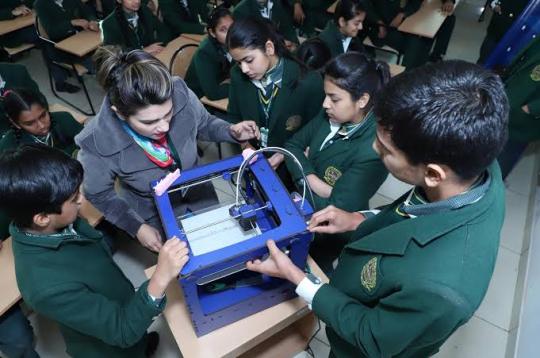
#franchise school model#franchise of english medium school#top 10 high school franchise in india#how to start a cbse school in india#how to start a primary school#satluj world school#franchise opportunities#top franchise business#successful franchise business#best franchise investments#new school franchise#open school business#new upcoming school franchise#private school franchise#World School Franchise#Public School Franchise
0 notes
Text
High School Franchise- Trio Educational Services
Harness the potential of the booming education market in India and become an “Edupreneur” with Trio Educational Services (TES), by setting up a K-12 franchise. Starting a K-12 school is demands upholding the highest of quality standards and strict adherence to rules and regulations. TES has a strong background in creating award winning schools that make a difference to the lives of children, families and the society. TRIO World school is among the most sought-after Indian Curriculum schools in Bengaluru. TRIO can help you setup a school with unparalleled subject diversity and infrastructure, that can cater to a wider pool of students. With the K-12 school market slated to grow at a tremendous pace, TRIO’s globally minded educational approach will help you cater to the needs of students in the upcoming decades.
A TRIO franchise can augment your growth as an entrepreneur by designing a school franchise with you and for you.
TES can advise you on the best possibilities after assessing available infrastructure, resources, and permits. TES will provide end-to-end franchisor support for making crucial decisions about curricula, infrastructure, interiors, marketing, facility planning, recruitment, publicity, business models, publications, professional development and teacher training, quality control and audits.
Trio Educational Services strives to take quality education to students across the world. Our solutions are catered towards involving administration, teachers and parents of students in all our initiatives. We offer franchising opportunities for both ICSE and/or CBSE curricula schools, in both urban areas as well as Tier 2 and Tier 3 cities.
To know more about Trio Educational Franchise, Kindly visit us on https://www.trioeducationalservices.com/k-12-franchisee/
Contact Details:
[email protected] +91 8884470022
Explore more about Trio School Franchise at the below links:
High School Franchise | English Medium School Franchise | Top School Franchise | K-12 Educational Franchise | K-12 School Franchise in Pune | K-12 School Franchise in Kolkata | K-12 School Franchise in Bangalore | K-12 School Franchise in Delhi
#High School Franchise#English Medium School Franchise#Top School Franchise#K-12 Educational Franchise
1 note
·
View note
Text
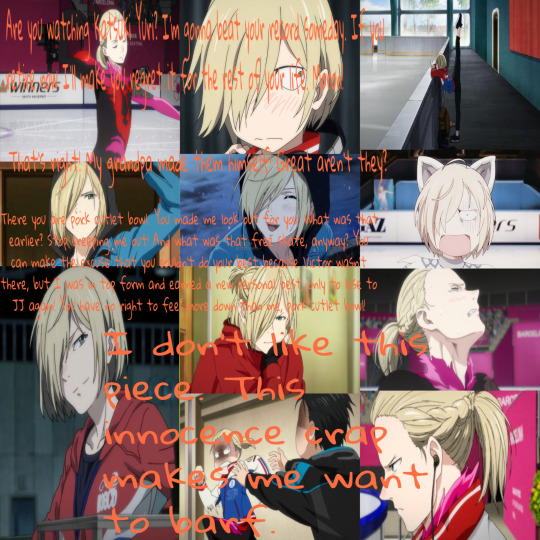
"Are you watching Katsuki Yuri? I'm going to beat your record someday. If you retire now I'll make you regret it for the rest of your life. Moron!
There you are pork cutlet bowl. You made me look for you. What was that earlier? Stop creeping me out! And what was with that free skate anyway? You can make the excuse that you didn't do your best because Victor wasn't there, but I was in top form and earned a new personal best only to lose to JJ again! You have no right to feel more down than me pork cutlet bowl!
I don't like this piece. This innocence crap makes me want to barf." (Yuri "Yurio" Plisetsky, Yuri On Ice.)
It's anime time once again for comfort characters! We are now in my senior year of high school. I was seventeen when a previous best friend of mine came back into my life and told me all about this "gay skating anime" that had recently come out that she was obsessed with. At her recommendation I watched the first episode. That first episode piqued my interest beyond belief and one character in particular I was instantly intrigued by, it's our baby tsun tsun Yurio Plisetsky's time to shine!
Even though at first Yurio was just seen as an angsty kid I knew that there was something special about him. That there was something deeper about his backstory and how that would tie into his character by the very end. And low and behold I was totally right. Yurio is somebody that had to harden his heart and shut the rest of the world out to only focus on one thing. He knew that he had to be the best. If he wasn't the best then he'd let down the one person that has ever stuck around, his grandfather that loves him. This love becomes his driving force for his character development and helps him to open up to his friends. His agape is something that drives his development and character forward.
Yurio's character is actually one of my favorites in all of anime. Part of it is character interactions. Some of his insults just crack me up. Another big chunk of it is his softer moments. My favorite moment in the entire show is when he shares his pork cutlet piroshki's that his grandfather worked hard to make. His smile when he shared them with Yuuri that's the soft shit right there. It was the moment when I knew that he would be my favorite character instead of just "one of" my favorites.
His determination is backed by hard actual talent. He's worked hard to become the best skater of all time in his mind. Even though he might bitch and complain about how hard the practice actually is, like when he had to do ballet, he works his hardest to be incredible at skating. It's why I cheered so loud when I found that he won the big medal at the end of the show instead of Yuuri. I had been rooting for Yurio since day one because I saw that fire and that drive to be the best.
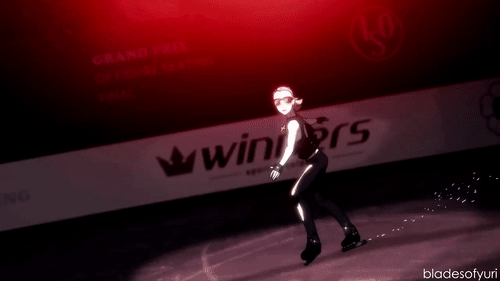
(Only one completely insane cat boi could be this off and it became my favorite skate in the entire franchise. I love Welcome To The Madness and it broke my heart that it wasn't in the official show. His expressions are another thing that I have a soft spot for and I tried to fit as many into this edit as I could.)
Voice actor appreciation time! Oh boy do I have a *lot* of appreciation to discuss with this one because this was one of those that made me reach my hand into the back of my head in shock. In fact, I watched the show three times before I even knew who his VA even was. I was twelve when I went to my local anime con with my parents for the last time. This was the last time that they went with me anyways. My mom was especially excited for this con because the one voice actor that she knows was there, Micah Soulsod. She watched all of Soul Eater with me where he voiced Soul. He is one of those people that is basically a voice puppet. Like he can do anything and play any role that they need for him to. Which is why Yurio Plisetsky surprised me so much. I was watching Anime America's review of the show on Youtube and they were like "Yurio voiced by Micah Soulsod" BITCH SAY WHAT. Ever since then I've given my mad respect to the man who voiced our tiger of Russia in English.
Yurio to me is what welcomed me back to anime. Of course it was by yelling at me but the sentiment was there. It wasn't what officially brought me back into the medium as a whole ( that's tomorrow) but he was done and I kind of had a really bad day so I wasn't in the mood to make another one. I'm going to call my therapist tomorrow and see when I can schedule an appointment. Don't worry though! The daily edits will keep going all throughout this month. It's just that I need to work on my self love a little bit more than I actually do.
#yuri on ice#yurio plisetsky#favorite anime#favorite characters#best tsundere no I will not take your critics keep them to yourself#day 19: yuri on ice
8 notes
·
View notes
Link
Xavierian High School is the Best English Medium School in Bhubaneswar providing quality education to students and influencing and preparing them for their bright future.
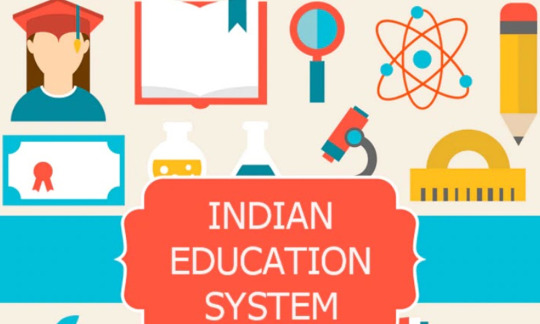
Admission in Xavierian High School Bhubaneswar will not be gambling for students as well as their parents. Besides the academics, Xavierian High School also focuses on extracurricular activities of the children. Children are bias-free in comparison of interests, every individual in school, individual refers as students
#best english medium school in bhubaneswar#admission in xaverian high school odisha#top cbse school in Bhubaneswar odisha#franchise of xavierian high school bhubaneswar#xaverian high school
0 notes
Text
My first review of Evangelion: 3.0+1.0 Thrice Upon a Time
Here’s my first impression under the cut...
The franchise as art.
Not just the Eva franchise but the concept of a franchise itself. Because franchises, as they exist in the world of filmmaking, are inherently a capitalist product designed for escapism. Let’s go to the movies for a brand new chapter in the ever-sprawling saga of commoditized characters conquering a new mile in the millennially trotted hero journey, yay! Isn’t that how you can describe the act of purchasing a ticket to the latest entry in your favorite franchise? And what’s so wrong with that, anyway? After all, we need our escapism when life becomes unbearable. It’s just a public service really!
And is Eva really that different? At the end of the day, no matter how avant-garde it can be, it’s still a product that we’ve come to consume, quite literally, again and again. Not only that, but it’s also a damn good profitable IP with millions of merchandise goods, box-office record numbers and, now, a distribution deal with one of the gods of capitalism: Amazon. Long gone are the days of non-profit experiencing of it. You can now legally pay to watch its whole audiovisual canon in Netflix and Prime.
Still, even after its paradoxical commodification, the text of Eva itself remains as a message of anti-escapism. No matter how many figures, blu-rays and streaming services you pay for, the message of Eva remains the same. A message that quite starkly opposes itself to this escapist consumerism. Even if, ironically, is this very message that, due to its humanity, has touched the hearts of millions who have then turned it into another comfort food. This is so sad, alexa play komm, susser tod…
Now, cynicism aside, the reason 3.0+1.0 elevates the concept of a franchise to an art form is, quite simply, because, at its best, art is a method of communication delivering a message that could only be delivered through its chosen medium. I could very easily tell you to go outside and touch some grass, talk to your parents and hug your dearest, but that’d never have the same impact as experiencing the Eva franchise from start to finish.
3.0+1.0 is a film that can’t work without experiencing all the films and TV episodes before it. I mean, it has its own beginning, middle and end but, really, its message can’t be as impactful without the other entries in its franchise. The film itself rehashes images and situations we’ve come to intimately know from its predecessors. Not only that but it converses with them, presenting nuanced and overt contrasts of key moments. Particularly in its final act, we see the reversal and echoes of a lot of moments from End of Evangelion. Asuka gets mangled, not by outside forces, but by her own doing. Misato gets shot but she survives this. Ritsuko shots Gendo, but doesn’t kill him. Shinji doesn’t punish Gendo by devouring him through Unit-01, but instead saves him by getting close to him. This last one might be one of the most heart-wrenching moments in the whole movie, which, it’s worth noting, serves as the wholesome counterpart to EoE’s bitter ending. To say nothing of the contrast 3.0+1.0 presents to EoE’s beach scene…
But these are all narrative points that, with some serious talent, could even be conveyed through literary form and film, as we know, its powerful because its an audiovisual medium. And here’s where Eva, time and again, separates itself from most, if not all, franchises in recent memory. Its images are not only narrative but discursive. I’d even argue that, come its ending, Eva uses images that don’t really advance its plot, but rather help to cement its discourse, its message. And its been doing that since eps 25-26… The last minutes of Eva will always be a Brechtian assault on the senses with images that demand to be studied and interpreted. They’re not there to finish the bedtime story with a kiss on the forehead of your overworked soul, but to shake it out of its zombie state and fill you with emotions you can’t even describe through words until much later, if at all… I believe that’s why a lot of us have come back to Eva again and again. Not necessarily for its plot, but for the rise of emotions and thoughts that bolt through your core as you experience its final moments and how they re-paint the whole journey you’ve just travelled to get there.
3.0+1.0 is filled with such images that, one day, I’d love to analyze. I’m still too shocked from having watched it almost 20 hrs ago and this is already too long, so I’ll leave this task for subsequent viewings… still my mind can’t help but replay certain images over and over, even as I write this… from Misato looking at the photo of her son and Shinji… Kaworu crying as Shinji extends his hand to him… the juxtaposition of Unit-01 lying on its side, staring at the phallic ruins of Nerv HQ, and Shinji, on the same position and equally sized, staring at the piano he played with Kaworu… baby Shinji blatantly rejecting Gendo, only to find comfort with his mom, and baby Asuka painfully looking at this from afar… to the shot of Shinji and Rei, discussing the neon genesis, on an dismantled theater, as frames from the TV anime are projected onto them and the brick wall behind them… I can’t word what these images mean yet, but I’m looking forward to doing it one day…
I suppose this has turned into a long ramble, but I’m still sure of my opening thought. 3.0+1.0 takes elements of every entry on the Evangelion franchise to express a message that could only be conveyed with such impact by having consumed the entire franchise beforehand, and it does so in a way that doesn’t perpetuate the comfortable escapism of other franchises. Its very message of anti-escapism and use of images that converse emotionally, aesthetically, and intellectually with the viewer prevent it from being purely a capitalist product designed for escapism. It’s a piece of art, worth of being discussed at the same level of any work from a grand master of any other type of art. But it’s also a franchise… hopefully this will inspire more franchises as art forms.
And now, as a post-scriptum, because no review of Eva is worth anything without some shameless personal history, I must say that my journey with Eva has been like none other piece of media… I was introduced by it at 18 years old, fresh out of high school, by the person who would become my best friend, and I remember, back then, finding it incredibly comforting and enigmatic. It helped me through a period of drastic change in my life, from changing majors halfway from English to Film, to becoming an older brother at 19 (after a life of being an only child). I was incredibly depressed and struggled with addiction for years after that. I related to Shinji and his perpetual running away from life but, now, seven years later I got to see the conclusion to that journey my best friend invited me to… I also earned my bachelor’s degree in film, have a comfortable job and have been sober for 10 months. I don’t run away as much but I’d be lying if I wasn’t still, somewhat, disconnected from most people in my life. To be honest, I related so much to Gendo’s story on this film and that scared me. It’s still hard to let people in but, still, there’s been some growth. Small victories that allowed me to accept this final film’s message as completely valid. It’s just so wholesome, isn’t it? And yet, there’s a bittersweetness to it… like in every ending, you’re glad it happened but it’s painful coming to terms that it’s over. I cried for a good thirty minutes after it was over, washing the tears away, only to stare at my reflection and turn into a sobbing mess… I’ll never get to experience anything like this for the first time and that’s just incredibly sad… still, I’m so fucking glad for it all, even the wait (as shorter as it was for me) and I do believe I’ll be able to say bye-bye, all of Evangelion… one day.
#evangelion 3.0+1.0#neon genesis evangelion#Shinji Ikari#Kaworu Nagisa#rei ayanami#gendo ikari#Misato Katsuragi
5 notes
·
View notes
Text
OPINION: My Favorite Anime of 2020 Are All Music Videos
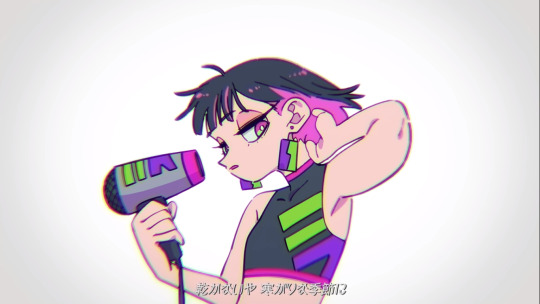
Image via ZUTOMAYO
Despite the enormous pressures of COVID-19, 2020 has had its share of anime classics. Keep Your Hands Off Eizouken! is a stone-cold classic to the degree it now feels as if it’s always existed. Decadence channeled the creative spirit of 2000s-era Madhouse into an off-kilter riff on dystopian science fiction and Pixar movies. Akudama Drive, now in its second half, continues to translate the bonkers, heartfelt pulp style of Danganronpa creator Kazutaka Kodaka to TV anime. There have been big successes in film, as well — Demon Slayer Mugen Train scored the highest opening weekend box office in Japanese history, while folks I follow on Twitter are excited for the new Bones film Josee, the Tiger and the Fish.
One of my favorite anime projects this year was something completely different. It’s "Gotcha!," a short Pokemon-themed music video directed by Rie Matsumoto and her friends at Bones. A sequence that takes all of Matsumoto’s strengths — her attention to detail, the way she depicts exciting and supernatural things bursting out of the walls of our ordinary world, and her obsession with cramming every layer of the screen with stuff — and turns them with the precision of a laser toward celebrating the series’s near 25-year history. As encyclopedic as a Pokedex despite being only three minutes long, it’s a glorious celebration of a series loved and made by passionate fans.
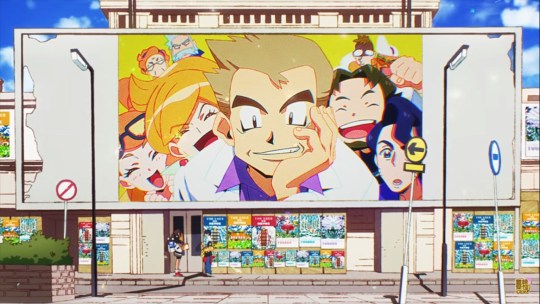
Image via Pokemon Official YouTube Channel
But "Gotcha!" wasn’t even the only fantastic music video made by former employees from the historic studio Toei. Earlier this year, animator Koudai Watanabe collaborated with the talented Naoki Yoshibe — director of the opening sequences for Gatchaman Crowds — to create a music video for ZUTOMAYO titled “STUDY ME.” It’s a rich purple-and-green media landscape of TV screens, glitches, Undertale references, and desperately reaching hands, packed with enough wild ideas and visual iconography to fuel an entire season of anime. But it wraps up in just under five minutes. You’re left watching the video over and over again in a daze, trying in vain to catch every little detail.
The animated music videos being made right now represent the most slept-on creative success in modern anime production among English language fans. (That’s music videos that are animated, not AMVs! You could write an entirely separate article on those.) I need to qualify “slept on,” since hardcore animation nerds like Yuyucow and Catsuka have been stumping for these works over the past several years. There are viral successes like "Gotcha!" and the inevitable crossover that happens when an artist doing the theme song for an anime leads others to check out their back catalog of past videos. But on websites and in magazines, I see stories about Netflix’s aggressive production of new TV series, the renaissance of Japanese anime films after Your Name, and bemused reactions to the shocking popularity of Demon Slayer: Kimetsu no Yaiba. Talk about the newest music videos online is a lot rarer. Not to mention older videos. "Gotcha!" may have broken out as a celebration of a popular game series, but its predecessor — a Lotte chocolate commercial produced by much of the same staff — is just as good!

Image via ZUTOMAYO
"Gotcha!" isn’t 2020’s only spiritual successor to excellent early work, either. In 2013, Yoko Kuno produced the video "Airy Me" as part of a graduate assignment. Set to a song by Cuushe, it’s a hallucinatory epic that’s both starkly horrifying and bittersweet. In the years since, Yoko Kuno’s made a name for herself across several mediums — winning the New Face Award for her manga work at Japan Media Arts Festival, serving as a pinch hitter on Orange’s production of Land of the Lustrous and contributing a memorable sequence to Beastars. She returned this year with filmmaker Tao Tajima to produce another sequence scored to Cuushe’s music, Magic. Riffing on Airy Me's themes of bodily transformation and human ennui, it sets the action against real photographic landscapes. It's another haunting masterwork by one of anime’s most multitalented young artists and has been on repeat for me since it came up on my Twitter feed.
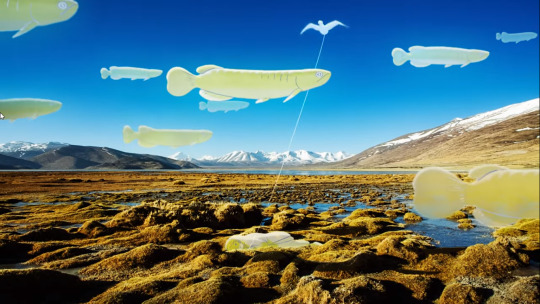
Image via FLAU
Meanwhile, the Japanese vocalist Eve continues to commission new and excellent animated work based on his songs. This May saw the release of "How to Eat Life," a video by indie animator Mariyasu which repurposes Eve’s unique symbology of surly adolescents and freaky puppet monsters into a stylish and spooky carnival of carnivorism. It’s an excellent piece that stands tall among the work collected under Eve’s banner, many of which are stone-cold classics themselves. But "Promise," released at the end of this October, threatens to outdo them all. Directed by Ken Yamamoto and produced at Cloverworks, it plays as another greatest hits compilation of Eve’s works — broken promises, collapsing cityscapes, creatures powered by feeling that shake the earth with their footsteps. There’s a real visceral punch to it that beats out even its excellent predecessors. When the protagonist folds over himself in anguish, you feel it in your gut. When he steps deep into the water and the entire world around him is shredded into pieces, anyone who’s ever been a teenager knows exactly how that feels. When his friend reaches in and pulls him out of that water, that’s real joy rising like bubbles through your veins.
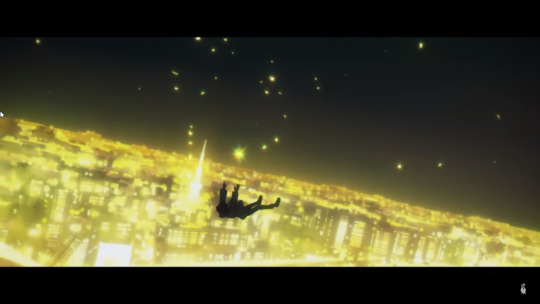
Image via Eve
Ken Yamamoto’s a bit more mainstream than Mariyasu — just last year he contributed some face-melting action sequences to Fate/Grand Order Absolute Demonic Front: Babylonia. But it says something to me that "Promise" — maybe his best work yet — was released as a music video rather than a new TV series. He’s not alone, either. This August, the animator China (storyboarder for Encouragement of Climb’s third season) together with character designer Mooang (storyboarder for Sarazanmai) produced the music video "Sore wo Ai to Yobu dake." Like the reverse of Yamamoto’s "Promise," it’s the story not of a pair of teenage boys and their separation that devastates a cityscape — but of a pair of teenage girls who reach across time to recover the bond they shared in their high school days. A potent combination of FLCL-style faded nostalgia, careful attention to body language, and pure patented kids-falling-through-the-sky-while-frantically-reaching-for-each-other anime magic, it’s one of the best-animated sequences of this year. I’ve linked it to friends just to plead “Watch this thing!” And it ends in less than four minutes long.

Image via Mafumafu
I can’t help but think: Where is China and Moaang’s movie project? Where is Ken Yamamoto’s TV series? Why is it that Rie Matsumoto has produced two excellent music videos over the past two years that commemorate big franchises, but her rumored film project has yet to lift off? Perhaps the truth is that there isn’t room anymore in the TV anime industry for work like this. Many original projects seem to be tied to cellphone games or stage productions. Projects like Decadence are few and far between, and even those that exist play within a space already laid out by past successes. It’s not all bad, of course — Eizouken this year was a great example of an adaptation working in harmony with its source material. And we’ve seen studios like Orange employ weirder anime creators like Yoko Kuno or the stop-motion team dwarf to great effect in their projects. But perhaps animated music videos represent the future for artists like Matsumoto — a medium that pays well, rewards experimentation, and lets strong artists play around without having to dilute their style. A bite-sized format just outside of the soul-draining churn that defines the industry.
Maybe this is fine, though. Short-form work is just as worthy of admiration as long-form work. I’d love feature-length projects from Ken Yamamoto or China, and I’d love for the world to see another Rie Matsumoto story told on a grand scale. But I can’t deny that Matsumoto rocks at putting together fantastic music videos and that I might even prefer the concise flow of "Gotcha!" to her TV series output. Either way, in this historically difficult year, I’m grateful to these folks for turning in career-best work and giving me hope for the future.
Do you have a favorite animated music video? At the risk of getting off track, do you have a favorite anime music video? Do you still watch different fan edits of Hatsune Miku and wowaka's "Rolling Girl" on rotation, like I do? Let me know in the comments!

Adam W is a Features Writer at Crunchyroll. When he isn't rewatching his favorite anime OPs over and over, he sporadically contributes with a loose coalition of friends to a blog called Isn't it Electrifying? You can find him on Twitter at: @wendeego
Do you love writing? Do you love anime? If you have an idea for a features story, pitch it to Crunchyroll Features!
By: Adam Wescott
8 notes
·
View notes
Photo

* 𝐫𝐨𝐜𝐜𝐨 𝐬𝐮𝐥𝐥𝐢𝐯𝐚𝐧 / 𝑶𝑽𝑬𝑹𝑽𝑰𝑬𝑾
all things rocco &&. interactions visage &&. musings graphic ©
B A S I C
NAME: rocco sullivan. NICKNAMES: roc. FACE CLAIM: tyler posey. AGE RANGE: twenty four (24) to thirty one (31). BIRTHDAY: 25 august. SPECIES: human. GENDER: cis man. PRONOUNS: he/him. HOME FANDOM: chicago fire oc. AVAILABILITY: open for plotting. more below, subject to change depending on verse.
F A M I L Y
MOTHER: harley sullivan, nee jackson. FATHER: gregory sullivan. FAMILY: gives you the roots to stand strong and tall. SIBLINGS: rocco is the youngest of eight.
P H Y S I C A L A T T R I B U T E S
RACE/ETHNICITY: mexican, english, scottish, irish, german, distant french. NATIONALITY: american. HEIGHT: five feet and ten inches (5′10) WEIGHT: irrelevant. BUILD: athletic. HAIR: medium. HAIR COLOR: dark brown. EYE COLOR: brown. DOMINANT HAND: right. ANOMALIES: none. SCENT: whatever he got for christmas that year. ACCENT: american. PHYSICAL DISABILITIES: none. LEARNING DISABILITIES: none. ALLERGIES: penecillin. DISORDERS: mild adhd. FASHION: plaid shirts for the most part. NERVOUS TICS: clenched jaw.
L I F E S T Y L E
HOME ADDRESS: varies, verse dependent. RESIDES: varies, verse dependent. BORN: st louis, missouri. RAISED: chicago, illinois. VEHICLE: 2010 lexus rx 350. PHONE: huawei. LAPTOP/COMPUTER: refurbished accer. PETS: none.
HIGH SCHOOL EDUCATION: graduated. COLLEGE EDUCATION: attended some community college classes, didn’t graduate. CAREER: firefighter candidate. EMPLOYER: chicago fire department, can vary depending on verse.
POLITICAL AFFILIATION: independent. RELIGION: presbyterian - attends every now and then with his mother. BELIEFS: depends on who asks. MISDEMEANORS: surprisingly, none. FELONIES: none. TICKETS AND/OR VIOLATIONS: none. DRUGS: none. SMOKES: never. ALCOHOL: only casually - doesn’t drink at home. DIET: is a good cook, spends a lot of time in the kitchen, enjoys it so eats well.
ROMANTIC ORIENTATION: undetermined. SEXUAL ORIENTATION: undetermined. MARTIAL STATUS: varies, verse dependent. CHILDREN: varies, verse dependent. AVAILABILITY: varies, verse dependent. LOOKING FOR: varies, verse dependent.
LANGUAGES: english, spanish.
PHOBIAS: having regrets. HOBBIES: boxing. TRAITS: kind, logical, reliable, aloof, fluffy, skeptical. SOCIAL MEDIA: tweets constantly.
F A V O U R I T E
LOCATION: alberta, canada SPORTS TEAM: calgary flames. GAME: ice hockey. MUSIC: hip hop. SHOWS: breaking bad. MOVIES: the saw movie franchise. FOOD: anything he’s made himself. BEVERAGE: mountain dew. COLOR: black.
C H A R A C T E R
MORAL ALIGNMENT: neutral good. MBTI: esfp. ENNEAGRAM: type 6 - the loyalist. TEMPERAMENT: choleric. WESTERN ZODIAC: virgo. SONG: hot in herre - nelly.
IDEOLOGIES: food is the best way to make yourself feel better.
#&&. rocco sullivan.#&&. rocco sullivan & threads.#&&. rocco sullivan & visage.#&&. rocco sullivan & musings.#&&. stats.
1 note
·
View note
Text
Preschool & Playschool Franchise Opportunities
Want a Birla Open Minds School Franchise? Let's connect. Get the right returns on your investment with a school franchise at a low investment. https://birlaopenminds.com/why-birla-open-minds.html
#school franchise#school franchise in india#school franchise business plan#english medium school franchise#best school franchise#best school franchise in india#international school franchise opportunity
0 notes
Text
You’re Never Too Old to Start Your Dreams: Read These Inspiring Stories

If you really have the desire to start a business, change careers, become an outstanding leader, or simply do something very different with your life, at which point is it too late to be a success? The answer is: never. Need a bit of inspiration to prove that it can be done no matter which age you are, below is a list of 14 incredible people who never reached success until after 40.
Julia Child
At age 39, Julia’s first cookbook was published; and at age 51, she made her TV debut in The French Chef.
Over 50 and Looking For a Career Change? Try These Ideas.
11 career ideas to try as you turn 50
medium.com
Sam Walton
Though Sam owned a small discount store chain, when he was 44, he opened his first real Wal-Mart in the year 1962.
Ray Kroc
In 1961, Ray was over 50 before buying the first McDonald’s, which he eventually grew into a global conglomerate.
Donald Fisher
After a string of entrepreneurial ventures, at age 41, Donald and his wife Doris launched The Gap. Today, it is a $16B per year business that has over 3,200 locations around the world.
Samuel Jackson
Samuel was 46 years of age before starring alongside Travolta in the movie Pulp Fiction.
Charles Darwin
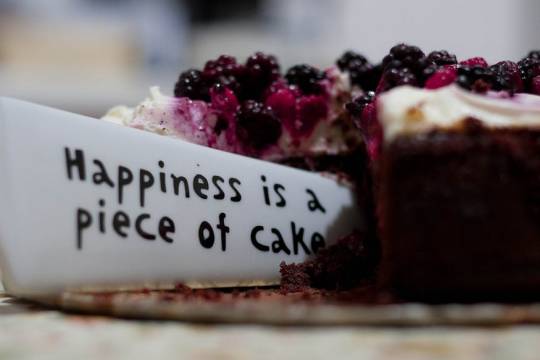
Duncan Hines
Hines, at age 55, wrote his first hotel and food guides. At the age of 73, he licensed the right to use the Hines name for the business that made Duncan Hines cake mixes.
Rodney Dangerfield
Rodney was known for his roles in ’80s films like Back to School and Caddyshack; however, he was 46 years old before getting his big break while on the Ed Sullivan Show.
Harland Sanders
Harland got fired from multiple jobs before starting a restaurant and failed again when the restaurant went out of business and he found himself broke by age 65. Things eventually worked themselves out when he sold the first franchise of Kentucky Fried Chicken in the year 1952.
Robin Chase
The former CEO and founder of Zipcar left her 40th birthday behind and was taking some time off work to be with her kids when she and her friend, Antje Danielson, devised the concept of the car-sharing business in the year 2000.
Nina and Tim Zagat

Vera Wang
She was initially known as a fashion editor and figure skater before making the decision before her wedding in 1989, at the age of 40, that she had the dream of becoming a designer. Wang commissioned her own wedding gown for $10,000 then opened her initial bridal boutique the next year.
Joy Behar
Known these days as The View’s former co-host, Joy was an English teacher who did not start her career in show business until after the age of 40.
Martha Stewart
She owned a catering business in Connecticut and worked on Wall Street, but Stewart’s real success arrived after the age of 41 with the publication of Entertaining, her first book, and seven years later, the Martha Stewart Living launch.
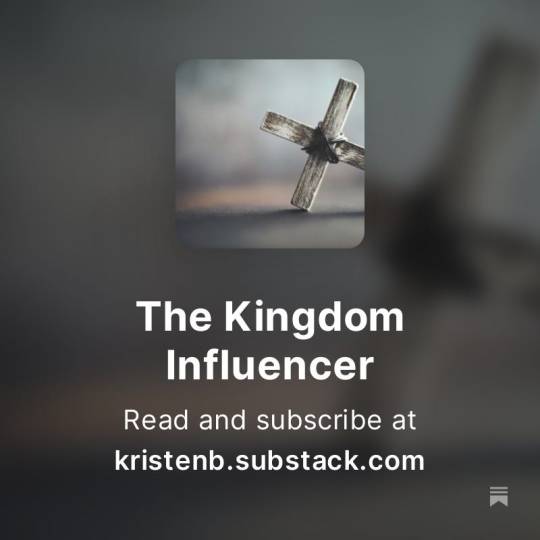
🍉Sign up here to catch every story when Kristen publishes. Kristen is a “Friend of Medium.” If you have an article you’d like her to check out, drop the link to it in the comments section! She may decide to feature it in her newsletter!
Originally posted on Medium
0 notes
Photo

A few years ago, we met an ESL student (we’ll call him Bryan) who was renowned for his expansive vocabulary. Although he was timid to speak to us at first (he was self-conscious about his accent), once he learned that we shared his favorite avocation, he waxed lyrical about the way he learned difficult and obscure words. During a half-hour conversation, he used the following words with ease: esoteric, visage, avarice, audacity, efficacious, resplendent, litany, paragon, conflagration, and evocation. These words run the gamut of usage and context, but Bryan incorporated them smoothly into his sentences.
Where did this high school student, who openly admitted that he rarely (his euphemism for “never”) reads, encounter these words in the first place?
Bryan was as loath to study vocabulary flash cards as to peruse novels. He didn’t subscribe to a newspaper or a magazine. His friends weren’t prodigies whose parents were renowned lexicographers. He had never even heard of Scrabble.
His secret? He played close to a thousand hours of this popular game:
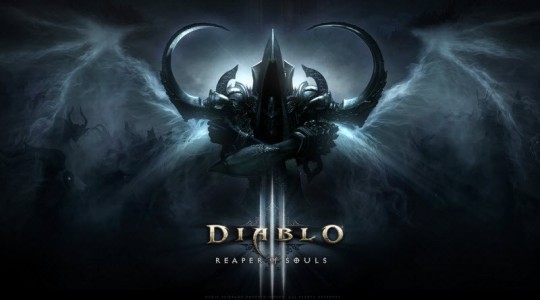

Yup. No joke.
For those of you who are not familiar with Blizzard Entertainment, it is the game developer responsible for the Starcraft and Warcraft franchises, not to mention the aforementioned Diablo trilogy. These notoriously addictive video games have even led to deaths, so it wasn’t surprising for us to learn that Bryan had “invested” countless hours into slaying rift bosses and mobs of demons. But while he was frantically alternating between left and right clicks on his Logitech G900 Chaos Spectrum, he was also paying attention to the odd names of gear, gems, and skills required to transmogrify (another term he learned through the game) his character into a redoubtable Nephalem.
These are just some of the words he encountered while burning the midnight oil playing the game:

A “conflagration” is a large fire. 🔥

“Esoteric” means ‘intended for or likely to be understood by only a small number of people with a specialized knowledge or interest.’

A “visage” is a person’s face or facial expression. 😚

“Avarice” is a fancy word for ‘greed.’ 🤑
What separates Bryan from hundreds of other people who play countless hours of Diablo III: Reaper of Souls and yet don’t have impressive vocabularies is that he actually takes time out to look up the words he doesn’t know. Don’t get us wrong: he doesn’t literally pause the game in the middle of combat and consult Dictionary.com to find out what “raiment” means. Bryan does that during the countless breaks the game allows, e.g., while examining the legendary loot and gear he won in battle before deciding whether to keep or salvage them. Obviously, 99% of all people who play video games do so exclusively for entertainment, i.e., to have mindless fun. But that doesn’t mean that you can’t learn something while you’re raining a bombardment of burning pitch and stone onto hordes of Cuddle Bears. Having fun and learning aren’t mutually exclusive. Bryan is living proof of that.
At this point, some of you might be thinking “But what if I don’t play video games? Isn’t this article completely irrelevant to me?”
Not so fast. Some of you have probably read our article that similarly praised the usefulness of comic books in improving one’s vocabulary. Had Bryan spent hundreds of hours reading comic books instead of playing Diablo III, the same thing would have happened.
If you don’t play video games or read comic books, you’re still not lost. Do you watch movies or TV shows? Watch your heart out, but turn on the subtitles (even if the program is originally in English); doing so will draw your attention to new words. Here are two words that a Japanese-to-English translator used (from “Tokyo Ghoul”):
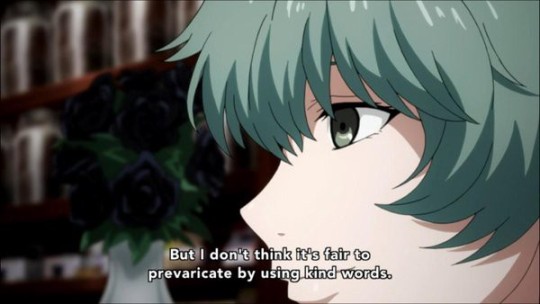
To “prevaricate” is to speak or act in an evasive way to mislead or deceive.
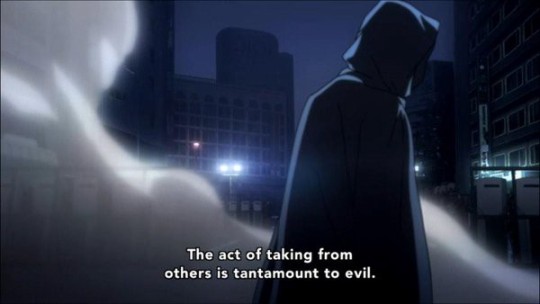
“Tantamount” is a fancy word for ‘same as’ or ‘equal to.’
Do you listen to music? Listen and sing your heart out, but take a look at the lyrics. A band like the Decemberists is renowned for its vocabulary. Even if you’ve never heard of them, you’re probably familiar with Eminem, who CNN reported has one of the largest vocabularies in the music industry. You are bound to encounter a cornucopia of advanced words.
Do you spend a large chunk of time on Twitter? Check what your favorite celebrity has eaten for lunch, but also take a glance at the timeline of accounts such as Dictionary.com, Oxford Dictionaries, Elite Test Prep, and … us! (And if you like archaic words, Haggard Hawks Words has you covered.)
You don’t have to do any extra work, other than the time it requires you to find the word in the dictionary and understand its meaning. But here’s the important part: after you figure out what a word means, use it as often as you can, as soon as you can. That’s easily the best way to learn the word—for life.
By the way, if you love reading 19th-century novels or informative magazines, don’t let anyone tell you that they’re not fun. Because they are. When it comes to expanding your vocabulary while enjoying yourself, you do you.

Website | Twitter | Instagram | Medium | Pinterest | Ko-fi | eBook
#vocabulary#grammar#ELA#EFL#ELT#learn vocabulary#writing#English#English class#learning English#video games#music#comic books#anime
96 notes
·
View notes
Photo
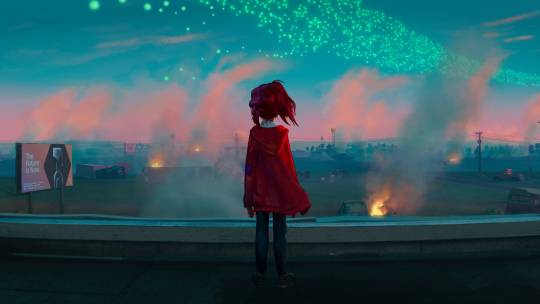
Drawing Closer.
Animation lovers: watchlists at the ready. From action capers to Irish folk tales, in 3DCG or the humble pencil, by manga legends and raucous newcomers, Letterboxd’s animation correspondent Kambole Campbell picks ten new feature films we’re excited to see.
When the gears of the live-action film industry ground to a near-halt earlier this year, animators were still at work. As a medium that, at its most fundamental level, is controlled fully by the imaginations of its creators, this might be the one element of the screen industry that has some kind of ability to operate throughout the pandemic.
Based on previews from this year’s online edition of the annual Annecy International Animation Film Festival, there’s a lot to look forward to that’s still in the works, even now. With everything from blockbuster capers and fantastical alternate histories, explorations of folklore and real human stories alike, we can expect a spoil of boundless and endlessly creative films limited only by the imaginations of those drawing them.
Here are ten animated features I’m specifically excited for, in no particular order (except for the first—fight me if you like, Masaaki Yuasa will always win).
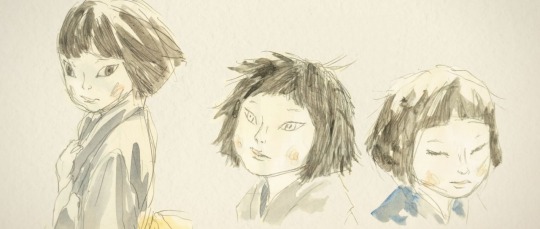
Inu-Oh Directed by Masaaki Yuasa / Due to release in 2021
If there’s one new animated film to watch in the next year, make it Inu-Oh (but also, don’t limit yourself to one). Masaaki Yuasa has proven himself time and again to be one of the most exciting and versatile animation directors alive, as well as potentially the busiest. With his studio, Science Saru, this year alone he directed two television series—the fantastic ode to animators, Keep Your Hands off Eizouken!!, and the intense Netflix disaster series Japan Sinks: 2020—as well as the melancholy, romantic feature film Ride Your Wave.
Inu-Oh looks to be just as imaginative and wild as anything else Yuasa-san has made, based on the work-in-progress glimpse at Annecy. Set in fourteenth-century Japan, the film is based on Hideo Furukama’s novel about the legendary masked Noh theater performer Inu-Oh, born with “unique characteristics”, which lead them to cover their entire body. Both novel and film focus on their close friendship with the blind biwa hōshi (lute priest) Tomona, and the success they find together.
“We often think of history as moving in one straight line, but it actually branches off, and people and events in those branches have been forgotten or disappeared,” Yuasa-san said during the Annecy preview. Inu-Oh explores those hidden branches through an anachronistic reimagining of the roots of traditional Japanese entertainment. The main idea: what if the performers of Noh theater were treated like Japan’s pop idols of today? Yuasa-san described the main characters as “kind of like The Beatles” of 1300s Japan.
On credits alone there’s a lot of promise, with the legendary Taiyō Matsumoto— the mangaka who created Tekkonkinkreet and Ping Pong (and collaborated with Yuasa-san on the latter’s fantastic anime adaptation)—lending his eccentric yet elegant designs to the film. The preview opened with minute movements comprised of rough, wide almost painterly brushstrokes, an art style almost completely unlike anything Yuasa-san has done previously.
As it turns out, this is but one way of representing the world of Inu-Oh, through the perspective of Tomona, a Notes on Blindness-esque way of representing how Tomona perceives things. From those small glimpses, Inu-Oh looks to be a beautiful, anthropological piece built with both the same free-form style that characterizes the rest of his work, and perhaps something more classical as well.
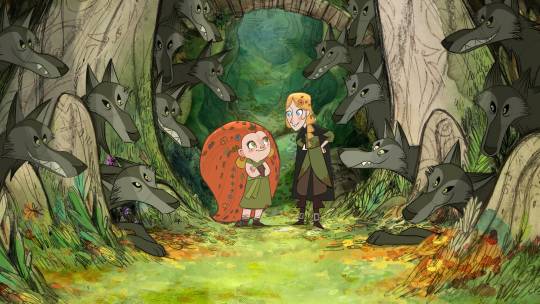
Wolfwalkers Directed by Tomm Moore and Ross Stewart / Coming to theaters and Apple TV+ in late 2020 after a September 12 premiere at TIFF
Made and set in Kilkenny, home to the acclaimed animation studio Cartoon Saloon, the much-anticipated Wolfwalkers is inspired by animation’s past, Celtic legend, and the local area’s history. Set in 1650, Wolfwalkers takes place amidst attempts by the English (Cromwell, specifically) to pacify and tame Ireland. Representative of those wild elements the English are seeking to eradicate are the ‘wolfwalkers’—people blessed by Saint Patrick with the power to leave their bodies at night and become wolves during their sleep (Irish werewolves, essentially). The story follows an English girl, Robyn Goodfellowe (Honor Kneafsey), who moves to Ireland with her father Bill (Sean Bean), to help carry out Cromwell’s plan to kill the wolves.
Like his previous film, Song of the Sea (2014), co-director Tomm Moore says this new film is based upon a childhood story common amongst those living in Kilkenny. And like his previous films (including 2009’s The Secret of Kells), it looks to be a visual feast, with a mixture of dynamic camera styles, pre-viz work and hand-drawn animation for moments like its ‘wolf-vision’. Moore draws the ideological divide between the English and the Irish into every scratch of pencil, the occupied cities comprised of rigid lines and angular designs, while the forest and its inhabitants are more free-flowing and unkempt.
Moore cited the rough charcoal lines of Isao Takahata’s The Tale of the Princess Kaguya as one influence on the Cartoon Saloon animators’ approach; the way that Robin is drawn gradually changing along with her worldview. Cartoon Saloon is yet to make a bad film, and Wolfwalkers looks like it might be the company’s most beautiful myth yet.
Stay tuned to The Letterboxd Show for an interview with Tomm Moore.
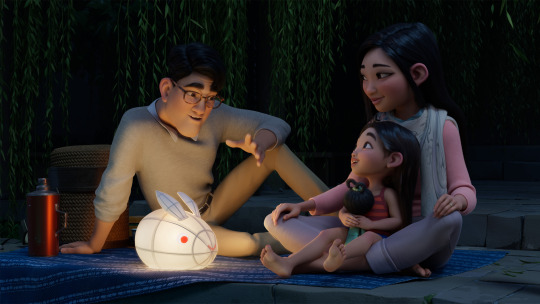
Over The Moon Directed by Glen Keane / Due on Netflix, late 2020
The feature directorial debut of animation legend Glen Keane, early glimpses of Over The Moon look utterly bonkers. A long-time character animator for Disney, having worked on almost all of the studio’s animation output since Pete’s Dragon in 1977, Keane looks to be bringing his vast array of talents to his first feature film. The trailer alone shows off a vast blend of styles, from the 3DCG (three-dimensional computer graphics) and more realistic lighting that we’ve come to expect from Disney animation, as well as the more textured, hand-drawn work the director cut his teeth on.
The story itself sounds wild, though it starts out simple enough: Fei Fei (Cathy Ang) is enraptured by her parents’ stories of a goddess living on the moon. After her mother passes away, Fei Fei begins to believe the story is true, and decides to build a rocket to get there. There’s also a hint of something living there. Whatever the answer is, I’m curious to see it, and with a star-studded cast that includes the likes of John Cho and Sandra Oh, how could I turn it down?
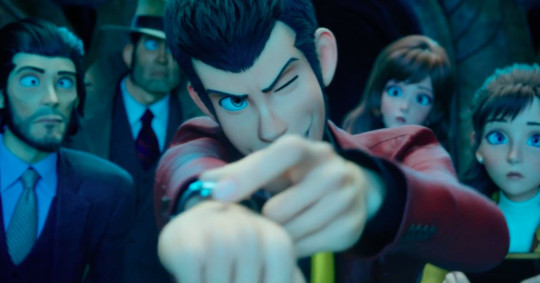
Lupin III: The First Directed by Takashi Yamazaki / Released in select territories; wider release due late 2020
Takashi Yamazaki’s Lupin III: The First, the first 3DCG-animated Lupin III feature film, looks rather incredible. It’s the latest in a vast, 50-year history of anime based on the manga from the late Kazuhiko Katō (known by the pen name Monkey Punch). Despite that long history, the Lupin III franchise has always managed to resist being made obsolete; part of its ongoing appeal is its ability to continuously adapt to new contexts and styles while retaining its simple charms, and The First is no different.
The film announces itself in the same way as ever, the iconic ‘Lupin III’ theme blaring over a flashy title sequence that builds off familiar iconography, as well as moments from the franchise’s history. It revels in the style of old-school caper the show continues to embrace, taking delight in the exploits of a modern-day gentleman thief who announces his robberies with calling cards.
Even with the new and unfamiliar animation style, Lupin III: The First feels like a classic Lupin III tale, taking the story back to the 1960s (the decade during which the character was created), and even putting its main character back in his classic red suit. Each character design translates surprisingly well to this mode of animation—Lupin’s gangly frame, as well as the unique appearances of his compatriots Goemon, Fujiko, Zenigata and Jigen (who looks bizarrely attractive in this—although, to be fair, “everyone in this movie is f—king sexy” according to Letterboxd member London. Accurate).
Yamazaki does well to avoid the often sterile feeling of 3DCG animation by having these characters all move like the cartoons they’re based on (for starters, a long-running visual gag of Lupin leaping straight out of his clothes). It might take some adjustment (which for me, only really lasted up to the opening credits) before it becomes fully dazzling. Lupin III: The First might be the most exciting action caper of 2020, in any medium.
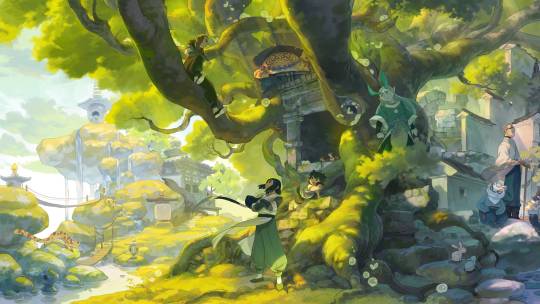
The Legend of Hei Directed by Mtjj / Released in China late 2019; international release TBA
Rivalling Lupin III: The First for most flamboyant animation on show at Annecy was The Legend of Hei, a feature-length prequel to the Flash web cartoon The Legend of Luo Xiaohei by Chinese artist Mtjj (real name Zhang Ping).
The series tells the story of the spirit Luo Xiaohei, who takes the appearance of a small black cat before being adopted by a young girl. The film’s story focuses more squarely on the cat, Xiaohei, who transforms into a man and goes on to live in the forest, his carefree existence soon interrupted by the discovery that humans are beginning to encroach on that territory as their cities expand, and technological progress puts the two worlds increasingly at odds.
As the film explores more of Xiaohei’s origins, the thick, clean line-work and cute art style disguises a much grander, epic conflict at play, realized in some wildly animated fight scenes. (“Starts off small and adorable, then expands into an epic conflict on an Akira scale,” writes Tasha Robinson.) The 2D-animated film allegedly took five years to produce, Mtjj saying in an interview that the complete film, at 100 minutes, required more than 70,000 drawings—or around twelve per second.
With its gentle score and clash of the spiritual world with the modern, the environmentally conscious work of Studio Ghibli comes to mind, as does the Nickelodeon series Avatar: The Last Airbender (perhaps the most popular consideration of East Asian spirituality in the West, especially with its resurgence of popularity thanks to Netflix). The Legend of Hei enjoyed an extremely lucrative run in China in late 2019 thanks to the original cartoon’s sizeable fanbase at home. No news yet on who will pick the film up in the West.
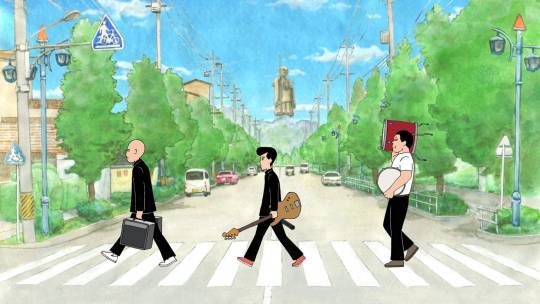
ON-GAKU: Our Sound Directed by Kenji Iwaisawa / Expected to release late 2020
Rotoscoped by hand over a period of seven years, the independently produced anime ON-GAKU: Our Sound has a rather appropriate match of creator and subject: a film about amateur musicians made by amateur animators.
Director Kenji Iwaisawa adapted the film from Hiroyuki Ohashi’s cult manga, and there’s a charm to the rudimentary style of its art, the plain faces of its characters resembling the designs of something like ONE’s Mob Psycho 100, while also matching that show’s deadpan, oddball sense of humor. The laid-back voice acting only adds to that effect, as main character Kenji and his cohort’s obvious excitement flattened into a consistently amusing monotone.
It’s not quite a classic tale of underdog artistry, as the group never really gets better, but the film embraces the primordial noise that emerges whenever they pick up an instrument. Iwaisawa takes the characters seriously, showing their raucous and unconventional performances with complete sincerity. “Loved the deadpan humor and appreciated the message about how art can act as an impetus for positive change in our lives,” writes Dan.
Passion, companionship and collaboration is what’s most important to Our Sound. It’s a deeply weird film, but one filled with great ambition and visual wonder, increasing in boldness as it goes. The different styles of coloring and expression that emerge beyond its initial palettes are radical enough to catch anyone off guard.
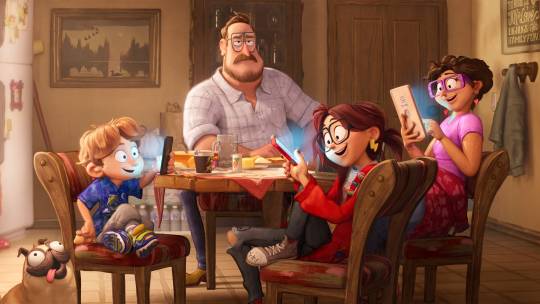
Connected Directed by Michael Rianda / Releasing in most territories in October 2020 (October 23 in the US)
Connected is the next step for Sony Animation as it moves in an exciting new direction (the studio recently stated that it would be green-lighting more animation aimed at adults). Produced by Phil Lord and Chris Miller, off the back of their immensely popular film Spider-Man: Into The Spider-Verse, Connected is imbued with the same kind of idiosyncrasy and innovation that made Spider-Verse a mega-hit.
From first-time feature director Michael Rianda, best known for his work on TV’s Gravity Falls, Connected is a family-road-trip-AI-apocalypse movie, based on the bizarre chemistry of Rianda’s own family. Formerly known as The Mitchells vs The Machines, the film looks at the push and pull between technology and human relationships, and how different generations respond to the ongoing changes in how we interact online and personally.
While this isn’t animated “on twos” (where each frame of character animation holds for two frames of background movement) as Spider-Verse often was, Connected also attempts to maintain a ‘drawn’ quality in its art. Characters move fluidly, but with clear outlines drawn from simple shapes. There’s also a strong contrast between the lived-in detail of human habitats versus the stark minimalism of the domain of the robots.
Thankfully the clips from the film don’t look nearly as finger-wavy and luddite as the trailers might suggest. (They appear to take the Boomer point of view that technology unequivocally ruins everything, but we know it’s more complicated than “screens bad”). In any case, it looks like the beginning of an interesting run for Sony Animation, and I’m keen to see how it turns out.
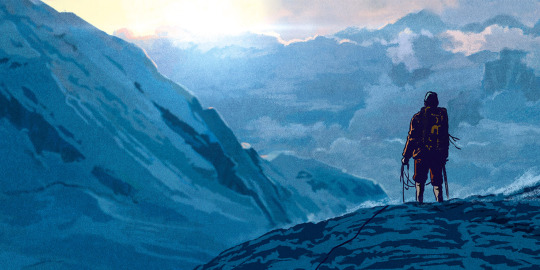
The Summit of the Gods (Le Sommet des Dieux) Directed by Patrick Imbert / Due to release 2021
Le Sommet des Dieux distinguishes itself in this list by being the one most firmly grounded in reality, but it’s by no means less wondrous. Based on Jirô Taniguchi’s five-volume manga Le Sommet des Dieux—itself based on the 1998 novel by Baku Yumemakura—the story starts with the question of whether George Mallory died going up or coming down the summit of Mount Everest on June 8, 1924. 70 years later, Fukamachi, a young Japanese reporter, stumbles across a camera potentially belonging to Mallory, and embarks on an adventure of his own with his friend Hasu Joji.
In close collaboration with the mangaka Taniguchi-san, who passed away during development, director Patrick Imbert seeks to replicate his art style, which was more aligned with that of European comics than traditional manga, with less exaggerated and highly detailed line-work. The team also looked outward from Taniguchi-san’s art, to the character designs of works such as Hiroyuki Okiura’s Jin-Roh: The Wolf Brigade, as well as his 2011 film A Letter To Momo, and the films of the late, great Satoshi Kon.
From what I saw at Annecy, there’s something of a mix between what Imbert calls the “documented detail” of Taniguchi-san’s work and simpler design for the larger urban spaces. To accomplish this, the studio draws its traditional 2D using modern techniques, such as “movie-style” framing—locations and interiors created in 3D software and then overpainted for detail, identity and authenticity.
The Summit of the Gods also seeks to recapture the detailed and subtle realism of Yumemakura-san’s depiction of George Mallory, with low-key voice performances conducted in shared sessions; recording movements and hiring a boom operator to make the sound more akin to live action, perhaps even more natural. Though production has already been long, the studio had thankfully pre-empted the long delays of Covid-19, so let’s hope we get to see the film with our own eyes, soon.
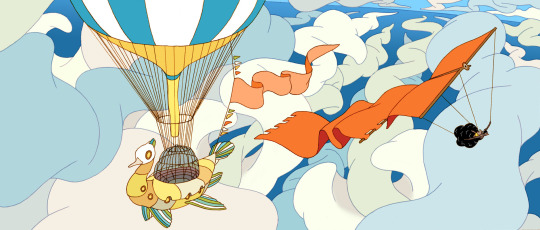
Sirocco and the Kingdom of the Winds Directed by Benoît Chieux / Scheduled for 2022
An original fable from animation director Benoît Chieux, Sirocco and the Kingdom of the Winds is still very much in the midst of production, with an expected release in 2022. It looks captivating; a surreal tale set in an imaginary kingdom with delicate and clearly defined artwork, about a being named Sirocco, a despised figure with the power to control the wind, who is forced into solitude by the denizens of this world.
The dream kingdom resembles a Spirited Away-esque land, with its own hierarchy and bizarre set of rules, mundanity mixed in with visual wonder. Flying crocodiles, living houses and strange humanoids populate it, and the main characters, a pair of girls named Carmen and Juliette, turn into cats themselves. All are drawn with wavy lines, soft colours and fluid movement, the surreal presented with an inviting rather than foreboding air.
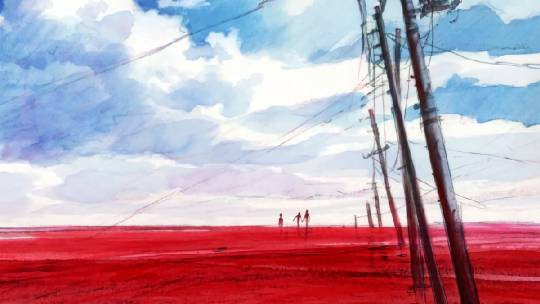
Evangelion 3.0 + 1.0 Directed by Hideaki Anno and others / 2020 release delayed; keep an eye on the official Twitter account for a new date
Hideaki Anno is set to bring his earth-shaking Neon Genesis Evangelion franchise to a close, again, with the fourth instalment of his ‘Rebuild’ series of films, Evangelion 3.0 + 1.0. Delayed for almost a decade now (the previous instalment came out in 2012!), and delayed again by Covid-19, the film looks to close out a grand rewriting of the original series that shot Anno-san and former studio Gainax to fame—“Bye Bye, All of Evangelion” the tagline reads. But we’re gonna have to wait a while longer to bid this final farewell.
Made with co-director Kazuya Tsurumaki (who has served as director with Anno-san since the original series), the first ‘Rebuild’ film, Evangelion: 1.0 You Are (Not) Alone, seemed to be a fairly conventional remake, updating the visuals and score with more modern techniques. The story starts the same: the isolated, depressed and self-loathing teenager Shinji Ikari is forced by his absentee father to help fight the mysterious, giant, alien ‘Angels’ by getting in an equally mysterious big robot called an Evangelion (“Eva” for short). He finds no self-fulfilment in this, and if anything, the close contact with other people only seems to push him further into himself. So far, so familiar.
However, the second film, Evangelion: 2.0 You Can (Not) Advance, veered completely off the rails in the best way possible, destroying audience preconceptions. The line between sequel and remake was fascinatingly blurred, and only continued to get weirder with Evangelion: 3.0 You Can (Not) Redo, as the story landed in completely unfamiliar territory, altering its characters beyond recognition while adding entirely new characters in the process. It’s now almost impossible to predict what 3.0 + 1.0 will be. The only footage available so far was a wild ten-minute clip in which the Eiffel Tower is wielded as a weapon by an Eva. We were this close.
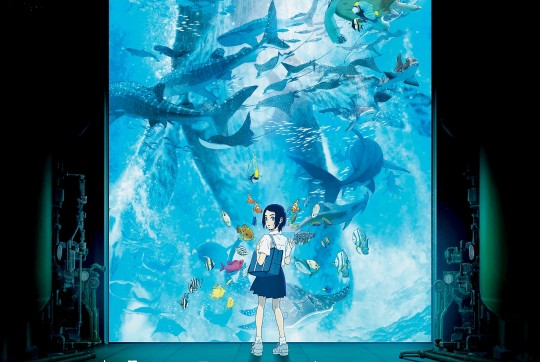
Ayumu Watanabe’s ‘Children of the Sea’ (2019).
There are almost too many gifts, even just from Annecy alone, to describe at length. A couple more worth mentioning: Anja Daiman’s musical comedy The Island looks fascinating for its reclamation of the colonialist story of Robinson Crusoe; and Yuta Murano’s first anime feature Our Seven-Day War promises plenty of plot twists amidst the actions of rebellious youth. A range of beguiling short films were also on display—a selection helpfully compiled here by Letterboxd member Iknow.
Outside of Annecy, other films are finally arriving, virtually or otherwise—such as Gints Zilbalodis’s peculiar and quiet Away, and Ayumu Watanabe’s beautiful and surreal Children of the Sea (with music from none other than Joe Hisaishi!). Though not all animation is comfort food by default—it is simply a medium, after all—it’s reassuring knowing that animated films are able to continue, in some form, through the pandemic.
Related content
Maxine the Movie Person’s excellent animation list
The 100 Highest Rated Animated Films of the 2010s according to our members
Revchu’s lists of the Top 100 Japanese Animated Films on Letterboxd, and the Top 100 Best-Rated Japanese Animated Films from the Anime News Network
Kambole’s selections in a Letterboxd list
Follow Kambole on Letterboxd
#Kambole Campbell#animation#anime#manga#inu-oh#lupin iii#lupin the 3rd#lupin the third#japanese cinema#cartoon saloon#wolfwalkers#tomm moore#ross stewart#letterboxd
7 notes
·
View notes